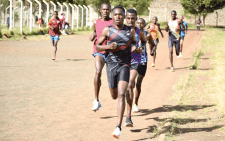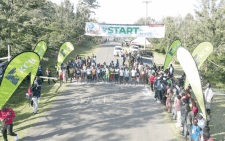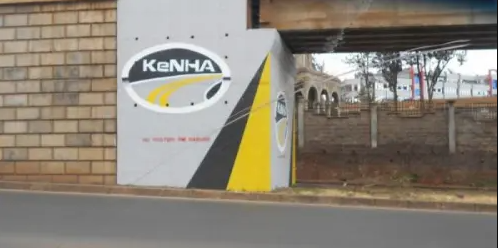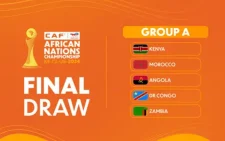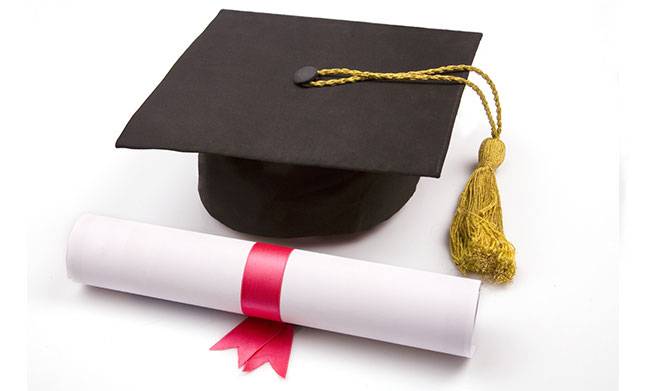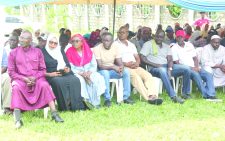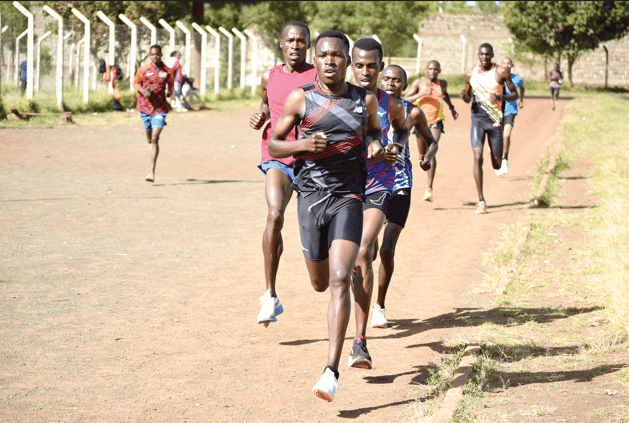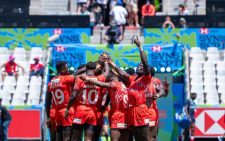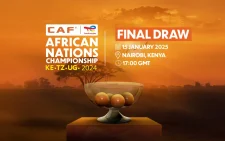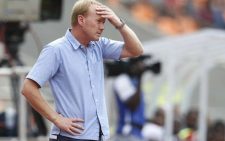Covid-19 hits deaf Olympian hard, but Moraa promises to bounce back
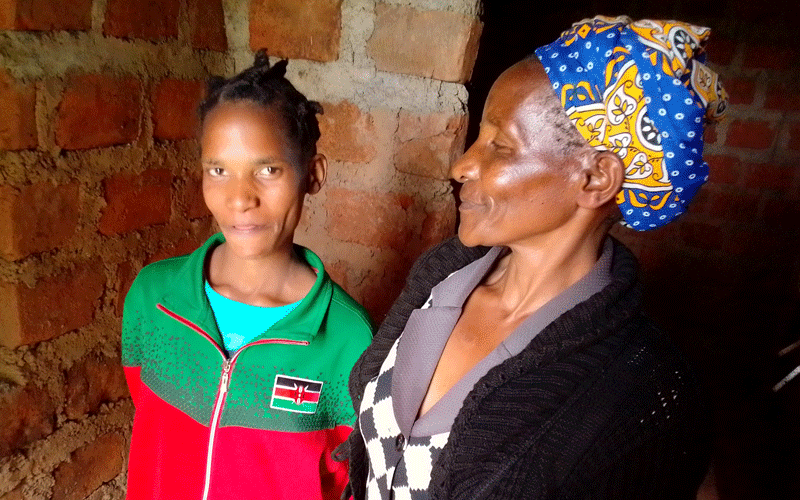
Just when she was set for big things, 2020 pulled a fast one on young Juster Moraa, trapping the athlete in the very life she was trying to escape from.
In the hills of Metembe in Masimba, Kisii County, stands a house.
As we enter its compound, Mary Kwamboka welcomes us warmly and directs us inside.
The derelict homestead is not the place we thought we would find Deaflympics bronze medalist Juster Moraa.
But as it turns out, this is where the 20-year-old resides with her widowed mother, Mary, and her twin sister.
The house is incomplete, devoid of doors and windows. A shocking living condition for a champion like Juster.
Inside the house, it is cold although it’s almost noon. The roof is made of iron sheets fixed on rafters that are visible as there is no ceiling. In the sitting room are four worn-out sofas arranged rectangularly.
“Our grass thatched hut was falling to pieces and we had to seek refuge in our neighbour’s house hoping to complete ours.
We overstayed our welcome and our neighbour got tired of us and we had no option but to move into the incomplete house,” explains Mary.
Breakthrough year
Juster, who is seated next to us, picks up from her mother and starts giving us her story, her athletics journey; writing it all down as we could not understand sign language.
“I started running right from primary school but 2017, during the Samsun 23rd Summer Deaflympics, was my breakthrough year internationally.
I won bronze in the 10,000m race and I was very excited,” she writes.
Juster said she used the money she got from the competition to build her mother a house.
“We bought bricks, cement and other materials and erected an eight-roomed house.
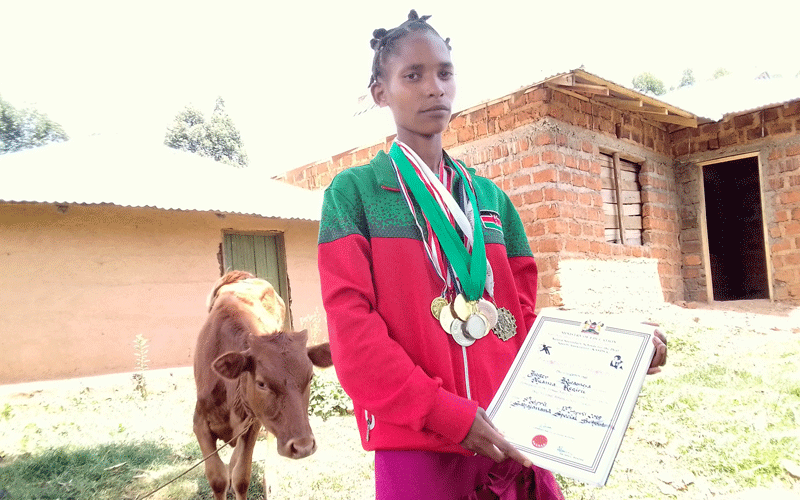
However, the money got depleted before the house was complete. I was nevertheless optimistic because I had more races coming.
One of them was a Safaricom-sponsored marathon in Kericho which I won and received Sh100,000,” she recalls.
But Sh100,000 was not enough, and after completing the roof, the money was over and they were unable to buy doors and windows, hence the current state of affairs.
Juster’s mother says her daughter has done well nationally and internationally but there is little to show for her success with many wondering why they are living in abject poverty.
“They always ask me where I take the money Juster makes from her races. But what they don’t know is that many times, the money does not get into Juster’s account.
For example last year September, Juster was promised over Sh1 million if she won the Africa Deaf Athletics Championship title.
During the competition which was held here in Nairobi, she was alone in her race and she was declared champion.
However, we’re yet to see the money she was promised. We only got Sh.50,000 in her account and a certificate of participation.”
Mary, 46, is now pleading with the organisers to honour the agreement, adding that the little Juster get from her wins is mostly used up in her trips.
“Being deaf, Juster needs me to accompany her to various places in the country.
But I’m not that exposed nor am I educated. This means we have to look for the services of a third person who guides us and we have to cater for his/her transport, food and accommodation.
All these require a lot of money, money which I have to borrow. So after the race, we pay off the debts and we’re left with nothing despite her winning.”
Despite all this, the Form Four student at Gianchere Special School, promises never to give up on her career as she desires to change her family’s fortunes.
Future is bright
“Even though Covid-19 has hit me hard, I am not out. I am talented and that has seen me win many titles and races, right from primary school.
I am optimistic my future is bright and I am looking at achieving more because God is planning great things for me,” said a cheery Juster, before making a passionate call to the government and well-wishers.
“I am a girl who is deaf but with a heavy burden on my shoulders. When you look at our family and the small piece of land we have, you’ll realise it’s difficult to sub-divide it among six siblings.
I wish to be independent and own a piece of land and build a good house that I can call my own home when finally I retire from athletics.
However, with things being what they are at the moment, I’m not sure of my future.
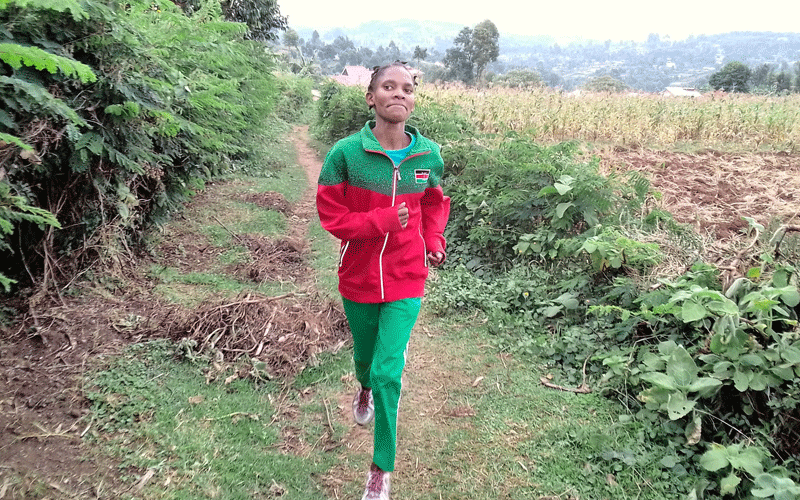
I win races but there’s no money to show for it. I, therefore, wish the government or any good person willing can help me,” appealed Juster.
Even with the challenges, Juster is selfless. She uses the little cash she gets to pay school fees for her twin sister, Winnie Kwamesa, who is also an athlete and a mother of a five-months-old baby.
Like other athletes, Juster has not been spared by the effects of Covid-19. She had planned to take part in this year’s World Deaf Athletics Championships as well as marathons scheduled for Kisii, Kericho and Mombasa, but this has not been possible.
Surprisingly, Juster does not have a professional trainer. She only trains by herself every morning and evening in anticipation of future competitions.
“My greatest challenge is lack of proper planning because I don’t have a calender of events. I wake up daily knowing I am practicing to compete.
Mine is to wake up daily, train hoping to be called to a competition. It’s difficult to train alone and with no specific goal and race in mind.
If we could have yearly scheduled events which I wake up knowing, saying 2021, I have races here and there, then you can see better results from me,” says Juster, whose wish is to get a professional trainer.
Instinct and talent
“I just rely on my own instinct and talent. I am told other athletes have a way of adjusting and accelerating during races but for me I just use energy from start to finish. I don’t have the technical expertise to approach different races and I think this is another reason why my best is yet to be seen.”
Juster adds that with no races due to the pandemic, she is unable to eat the nutritious food required of an athlete because of lack of money.
“Fresh milk is my favourite, especially when I’m planning to run or train. But now I’m unable to afford the food because of lack of money.”
Asked if she is aware about the recent government stimulus package to cushion vulnerable athletes like her from the harsh economy occasioned by the pandemic, the young athlete said she has no clue.
“I’m not aware of the programme. We don’t have a radio or television to learn about such opportunities.
Deaf Athletics Association of Kenya have never contacted me and I have not received anything.
It’s surprising that such programmes happen and we’re not informed or get to benefit despite the genuineness of our condition,” bemoaned Juster.
